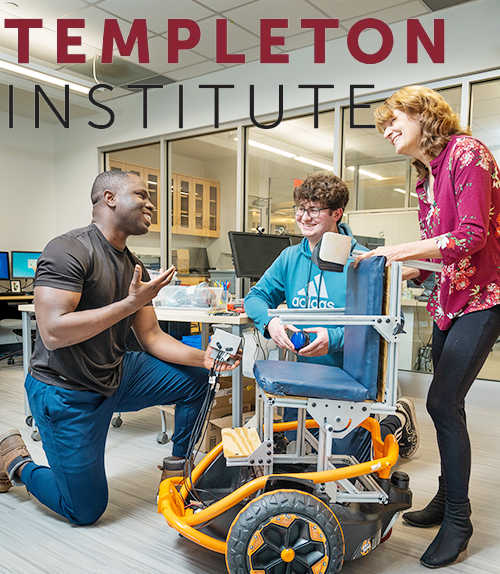In this model, faculty teaching traditional courses are asked to spend a small amount of class time (i.e., at least one lecture period’s worth of content) to cover relevant material that makes a connection to other of Union’s divisions and centers. For example, a technology or Math-focused class may undertake minor revisions to include a new Humanities-focused component, or a Humanities course that incorporates novel technologies in innovative ways may be considered. We purposely leave these interdisciplinary or transdisciplinary modifications in broad terms to foster faculty pedagogical innovations.
Examples of Course Module Innovations (CMI) might include:
- Discussion in a traditional Engineering circuits class of the challenges involved in the mining of metals ("conflict minerals") used to make circuit components. ABET criteria now include coverage of social, economic, and environmental aspects of design. A similar innovation involving conflict minerals was recently implemented at another institution and received praise from ABET.
- Consideration of philosophical questions in a traditional Computer Science class. For example, is living in a virtual world the same as living in the non-virtual world? Are we potentially living in a virtual world right now?
- Novel introduction of automated text mining or data analytics in an English class.
- A short overview and analysis of the creation (and ethics) of computer-generated artworks with DALL-E 3 in a Visual Arts course.
While the new CMI content need not be extensive (the minimum requirement is one lecture period’s worth of content and may be assigned as out-of-class work without sacrificing lecture time), we do ask that the content become part of the final grade for the course in some manner. In the circuits class noted above, for example, discussion about conflict minerals could be a small, but necessary, portion of one graded lab report.
Faculty interested in CMIs are encouraged to contact the TI Co-Directors for assistance with establishing connections to other divisions and centers. The TI will facilitate creating connections between and among faculty from different areas of research and teaching expertise.
The stipend of $250 shall be paid to up to two faculty members who are actively involved in the development of a given CMI. Please note that while working with a collaborator is encouraged, it is not required.
To apply, faculty may submit 350-word short narratives describing the CMI to templeton@union.edu by Jan. 15, 2025.
